Postman is a popular tool for application programming interface (API) development and testing. It streamlines the process of sending requests and analyzing responses, allowing developers to efficiently build and debug APIs. Postman scripting extends these functionalities by enabling the automation of repetitive tasks within the testing workflow.
If you have not found one yet, consider trying Apidog, a comprehensive API testing tool that provides developers with complete tools for the entire API lifecycle.
Learn more about Apidog's functionalities by checking out the button below.

This article explores how to create Postman Post Request scripts, guiding you through the process of sending data, handling responses, and ultimately, enhancing the efficiency and thoroughness of your API testing.
What are Postman Post-Request Scripts
Postman post-request scripts are essentially small programs written in JavaScript that execute after Postman sends a request and receives a response from an API.
It is a go-to tool for developers working with APIs (Application Programming Interfaces). It simplifies sending requests, analyzing responses, and ultimately, building and debugging APIs.
Core Functions of Postman Post-Request Scripts
Response Validation
Status Code Verification: Scripts can check if the API responds with the expected status code (e.g., 200 for success). This ensures the API is functioning as intended.
Data Assertions: You can write assertions to validate the content of the response body. Scripts can check for specific values, and data structures (like JSON objects with certain keys), or ensure the absence of unexpected data.
Data Manipulation
Transforming Response Data: Scripts can process data received in the response. This could involve formatting dates, converting units, or extracting specific pieces of information for further use.
Preparing Data for Subsequent Requests: Based on the received response, scripts can modify data sent in subsequent requests. This allows for dynamic testing scenarios and chained API interactions.
Integration with External Tools
Sending Notifications: Scripts can trigger notifications based on test results. Imagine sending a message to Slack if a critical API test fails.
Logging Results: Scripting allows logging test results to external databases for further analysis or reporting purposes.
Scripting Environment and Objects
JavaScript Execution: Postman provides a "Sandbox" environment where your scripts run securely.
Accessing Request and Response Data: The pm object provides access to various properties, with a focus on pm.response for interacting with the response data (body, headers, etc.).
Common Use Cases for Postman Post-Request Scripts
Comprehensive Response Validation
Verifying Status Codes: Scripts can ensure the API responds with the expected status code for success (200), errors (400, 404), or other relevant codes.
Detailed Data Assertions: Go beyond simple checks. Scripts can validate complex data structures within the response body. You can assert the presence or absence of specific keys in a JSON object, verify the format of data (e.g., dates, email addresses), or ensure specific values exist within nested structures.
Extracting Data for Further Use: Scripts can extract valuable information from the response body. This data can then be used in subsequent requests, stored for later analysis, or passed to other tools for further processing.
Advanced Data Manipulation
Transforming Response Data: Scripts can modify the data received in the response to suit your testing needs. This could involve formatting timestamps, converting currencies, or manipulating data types (e.g., converting strings to numbers).
Preparing Dynamic Requests: Based on the response from one API call, scripts can dynamically modify data sent in subsequent requests. This allows for testing scenarios that build upon each other, simulating real-world API interactions.
Generating Test Data: Scripts can dynamically generate test data for API calls. This can be useful for testing edge cases, creating large datasets, or randomizing data for various scenarios.
Integration with External Tools for Enhanced Testing
Sending Notifications: Imagine receiving an instant notification on Slack whenever a critical API test fails. Scripts can trigger notifications based on test results, keeping your team informed of potential issues.
Logging Test Results: Scripts can be used to log detailed test results to external databases. This allows for comprehensive reporting, historical analysis of test performance, and identification of trends over time.
Integration with Testing Frameworks: Scripts can connect Postman with external testing frameworks like Jest or Mocha. This allows you to leverage existing testing tools within your Postman workflow for a more holistic testing approach.
Examples of Postman Post-Request Scripts

Accessing Response Status Code and Body Data
pm.test("Status code is 200", function () {
pm.response.to.have.status(200);
});
console.log(pm.response.json());
This script performs two actions:
- It uses
pm.testto assert that the response status code is 200 (indicating success). - It utilizes
pm.response.json()to print the entire response body content to the console for inspection.
Building Assertions with pm.test
Postman's pm.test function allows you to write more robust assertions about the response data. Here are some examples:
Checking for Specific Values
pm.test("Name exists in response", function () {
pm.expect(pm.response.json().name).to.equal("John Doe");
});
Validating Data Strucutre
pm.test("Response has expected structure", function () {
pm.expect(pm.response.json()).to.have.property("id");
pm.expect(pm.response.json()).to.have.property("name");
});
Apidog - An All-In-One API Development Tool
Apidog is a comprehensive API tool that provides users with complete functionalities for the entire API lifecycle. You no longer have to download additional applications!
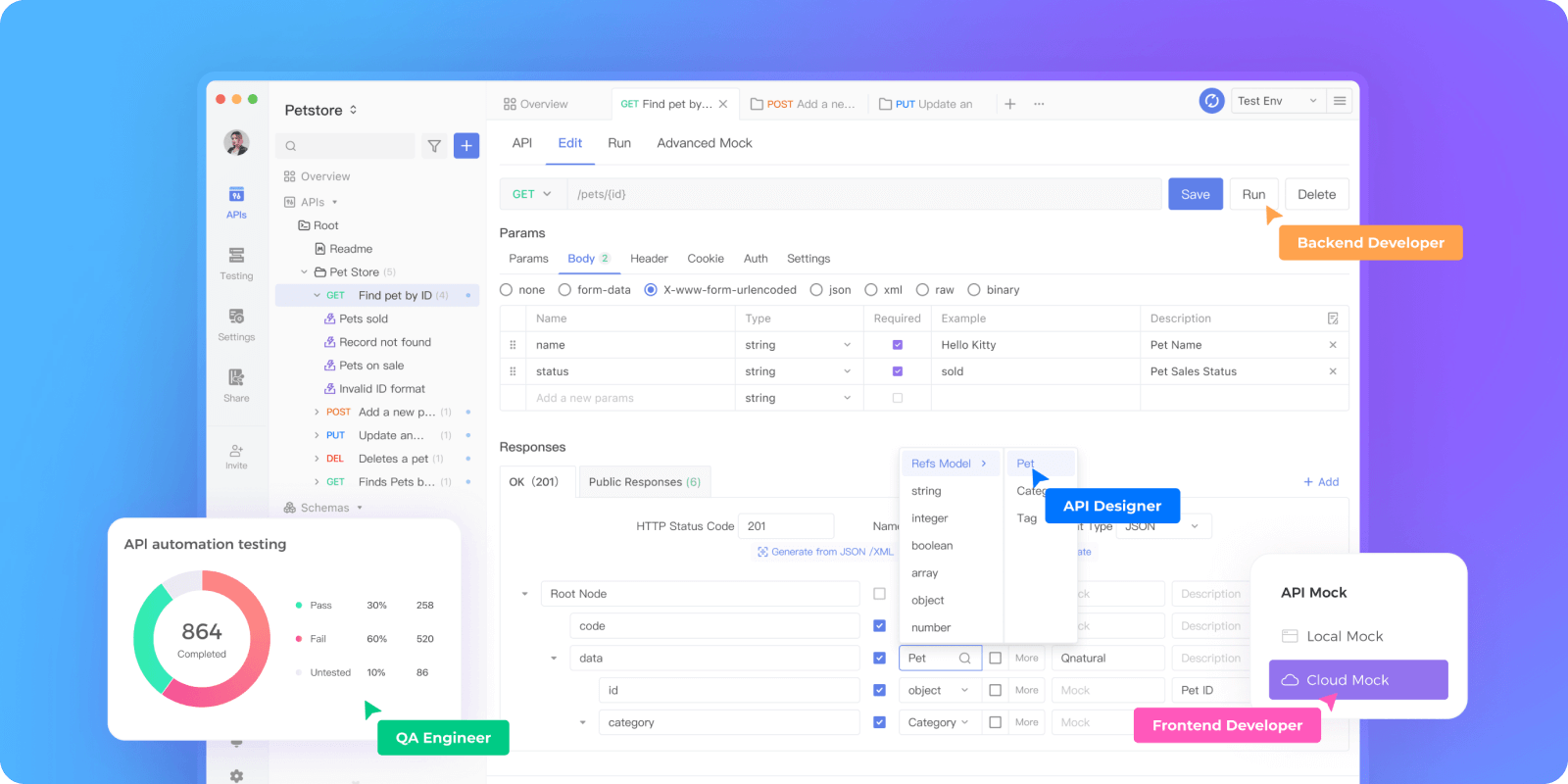
Apply Your Own Post-Processor Scripts with Apidog
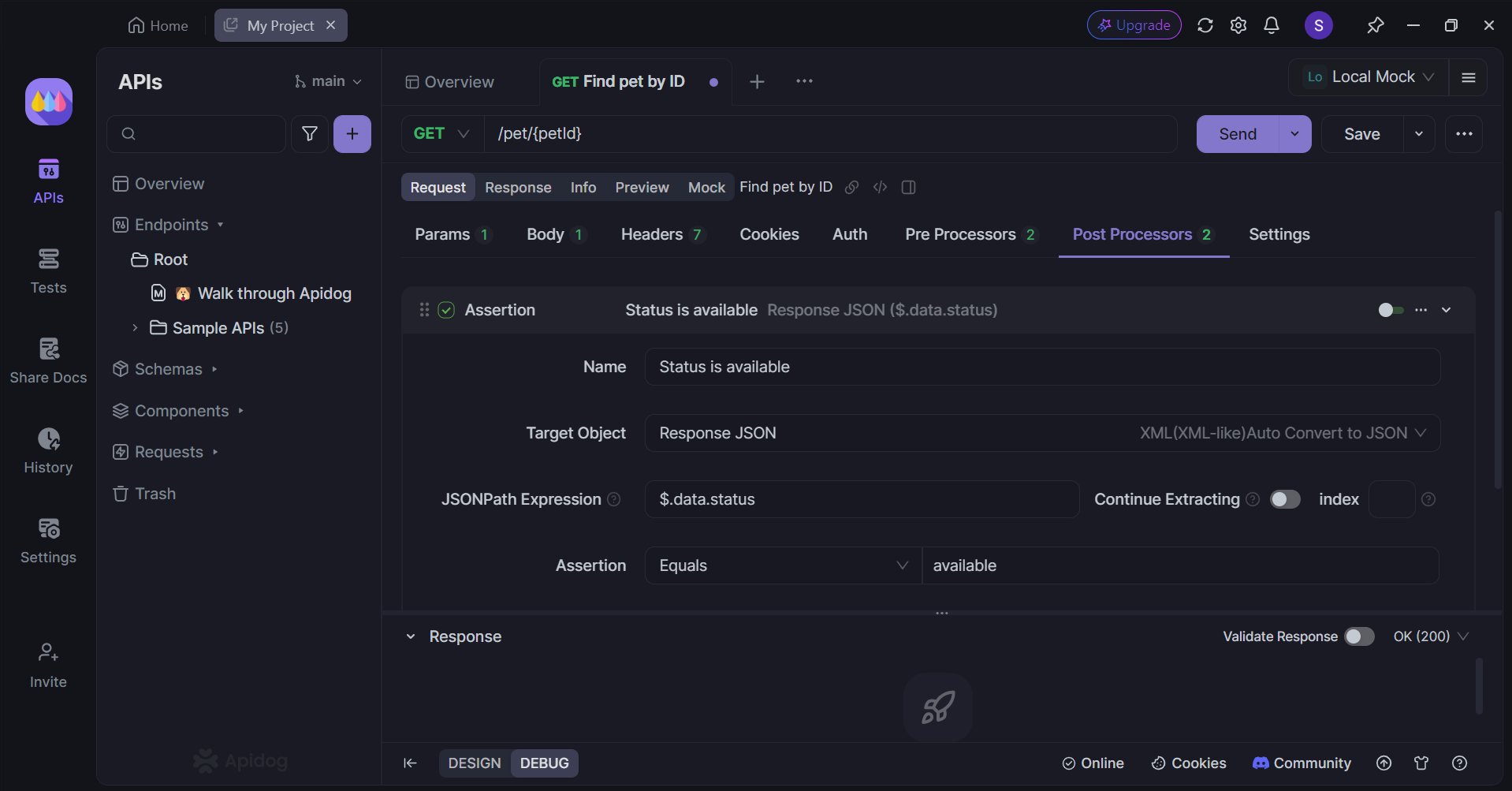
With Apidog, you can implement post-processor in any way you desire.
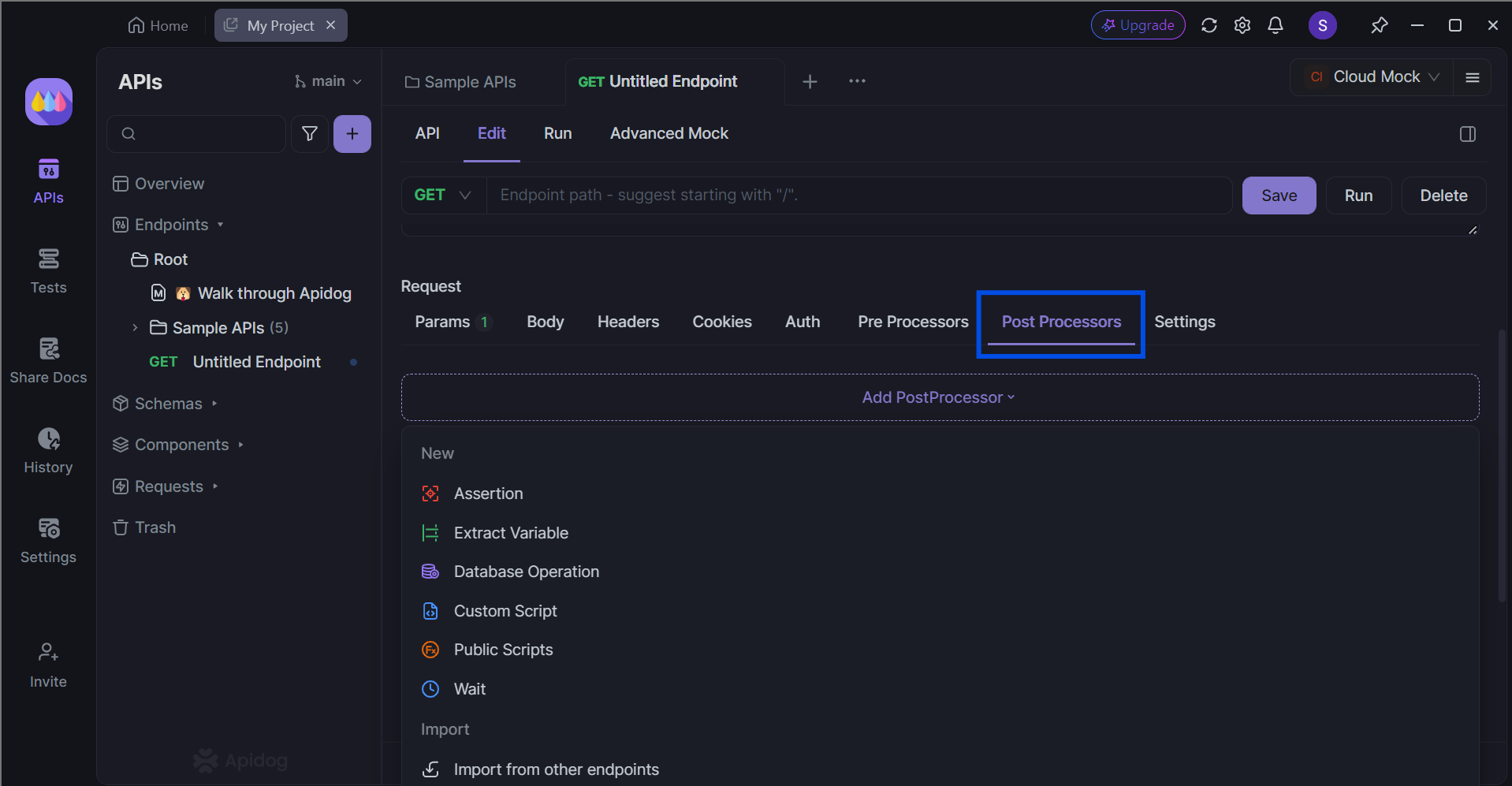
You can select from a variety of post-processors, such as assertions, custom, and even public scripts.
Test Multiple APIs with Test Scenarios
Apidog has a unique testing feature called test scenarios.
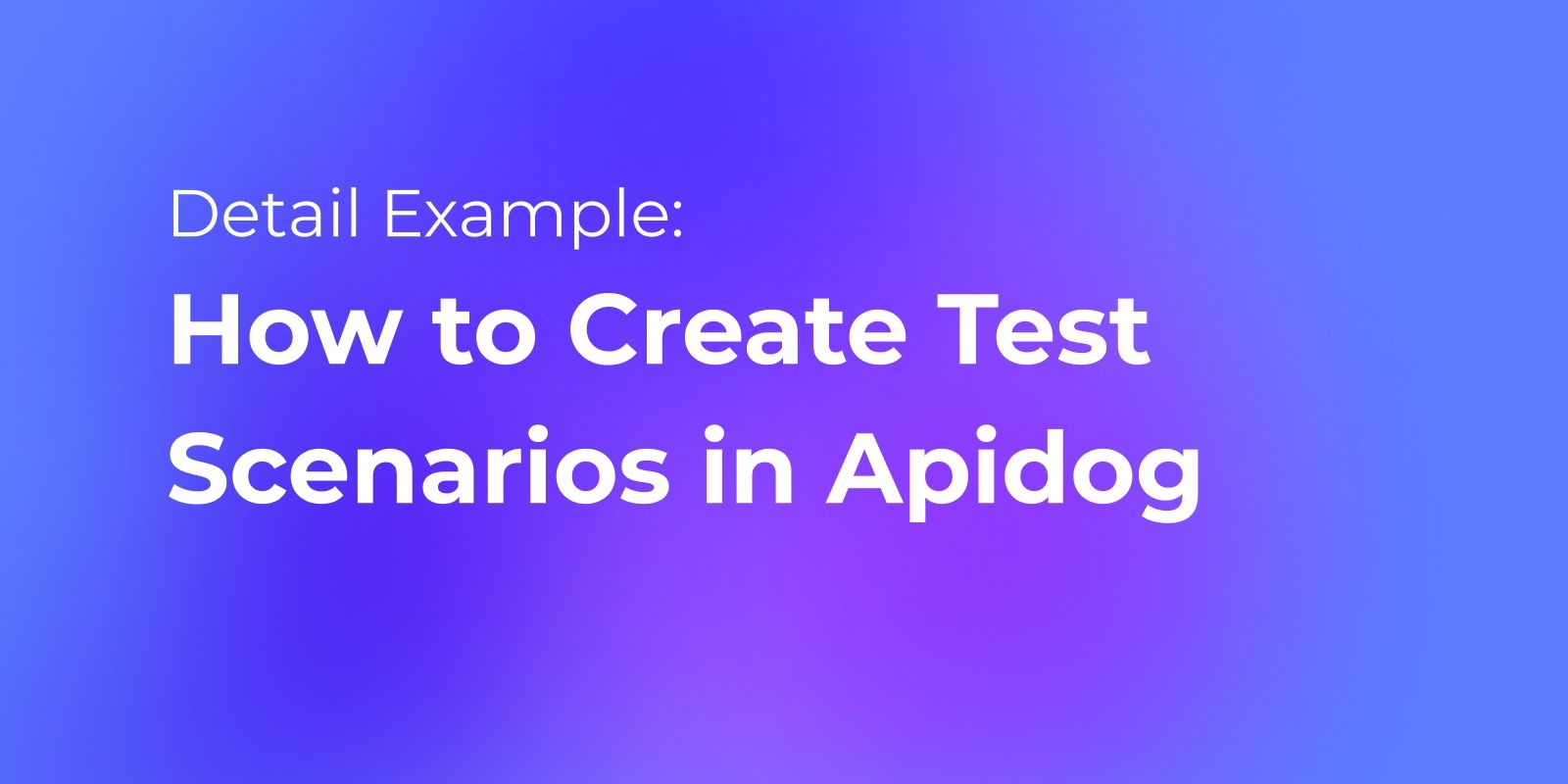
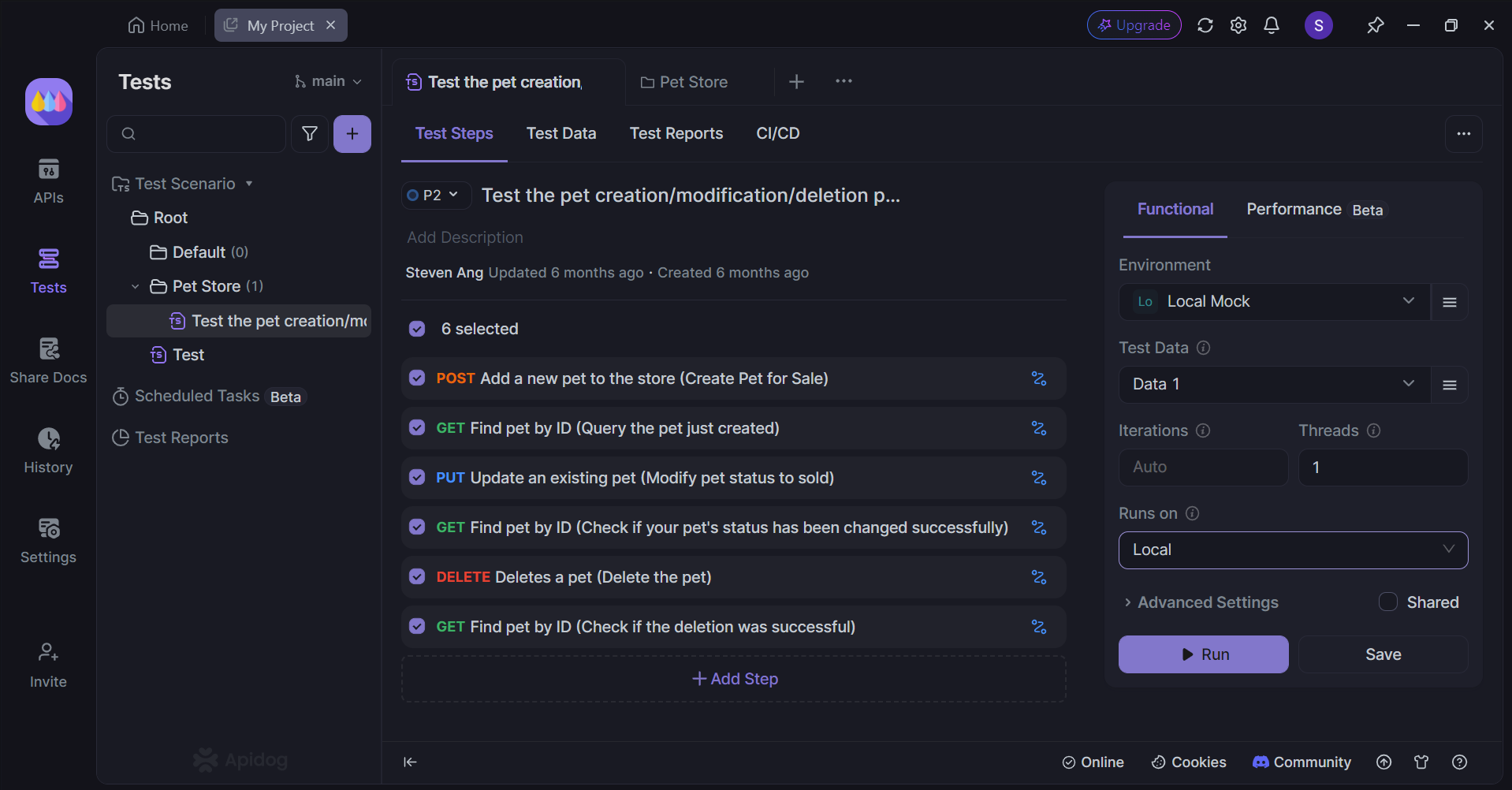
With Apidog, you can visually test different APIs together in a series of consecutive steps. This is especially effective for developers who have created a chain of APIs that rely on each other to perform their functionalities.
Perfect APIs With Accurate and Detailed Reports
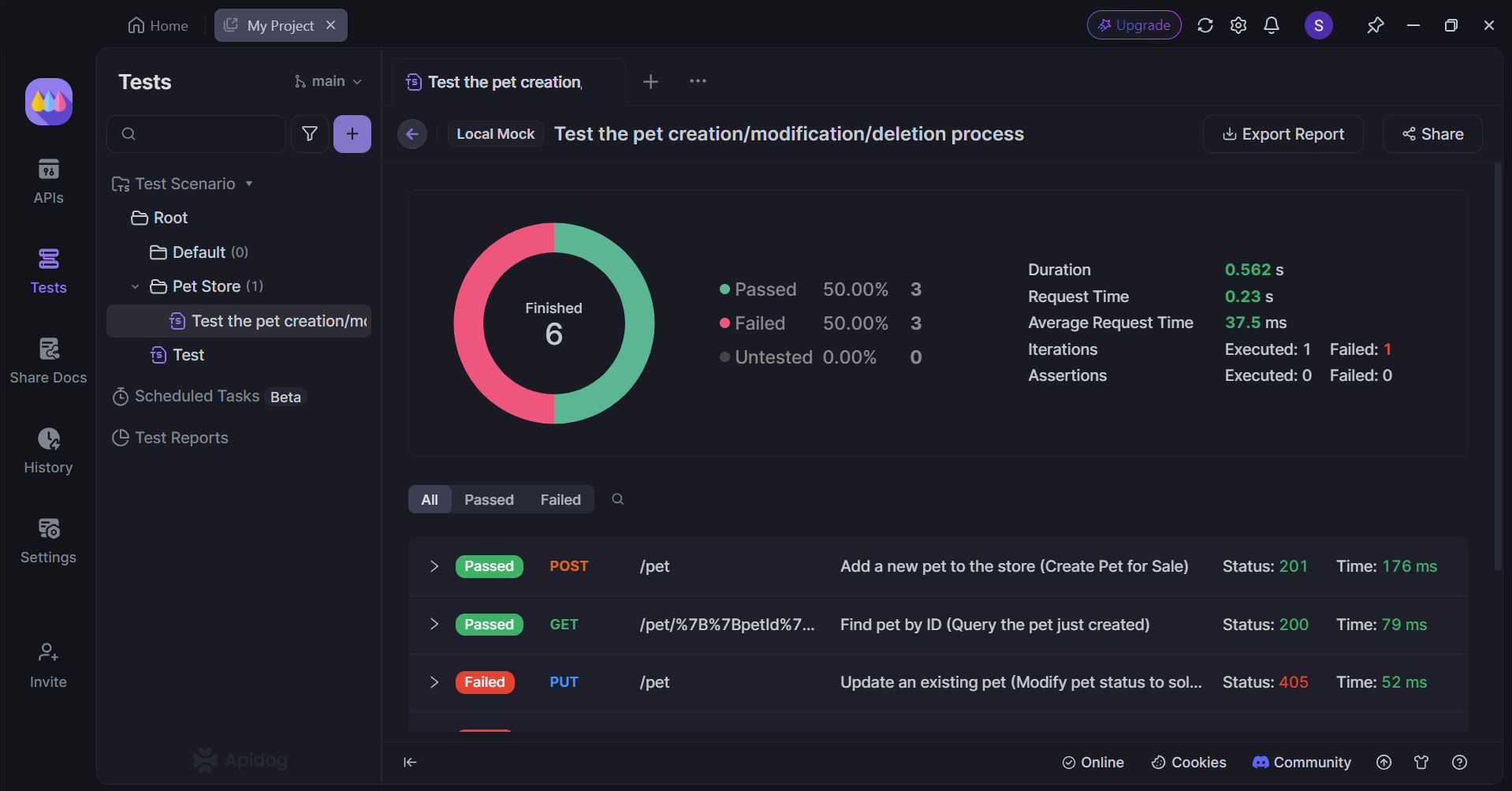
Apidog will then return a detailed report on your test scenario, outlining the number of failed and successful requests, together with the total duration of all the APIs to complete them.
Conclusion
Postman post-request scripts offer a powerful and versatile tool for enhancing your API testing process. By leveraging these scripts, you can automate repetitive tasks, perform comprehensive data validation, and integrate with external tools for a more streamlined workflow. Whether you're a seasoned developer or just starting with API testing, Postman's scripting capabilities empower you to build robust and reliable APIs with greater efficiency.
Remember, the world of Postman scripting offers a vast potential for exploration. Start with the basics outlined here, and delve deeper to unlock the full potential of this valuable tool for your API development journey.
![[Guide] Postman Post Request Scripts](https://assets.apidog.com/blog/2024/07/postman-post-request-scripts-cover.png)



